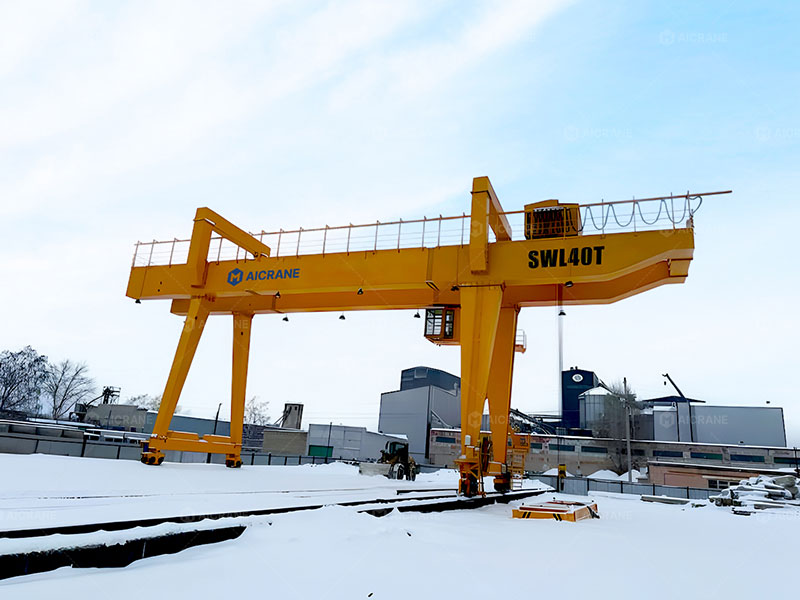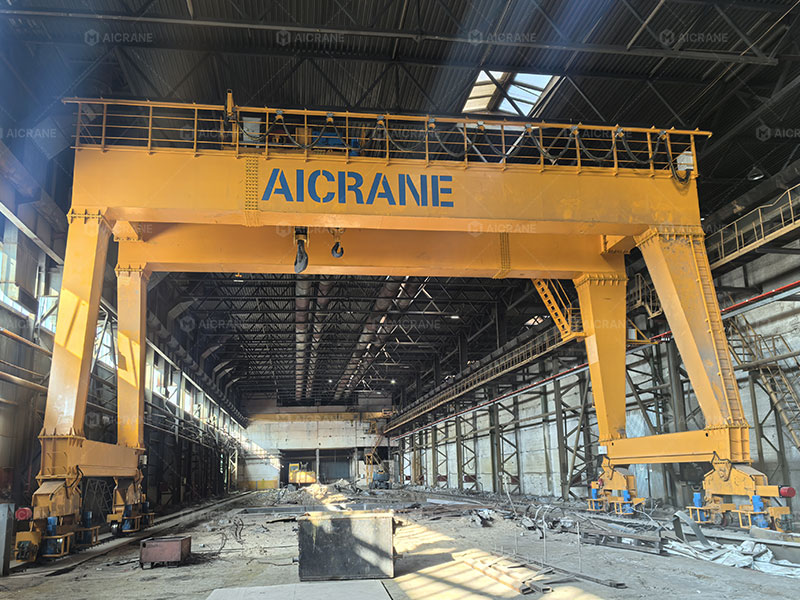Buying a gantry crane is a significant investment for any business. Whether you need it for construction, manufacturing, shipbuilding, logistics, or heavy equipment handling, the crane you select will directly impact your productivity, safety, and long-term costs. However, just as important as choosing the right crane is choosing the right supplier. The supplier is not only responsible for delivering the equipment but also for ensuring quality, compliance, after-sales service, and long-term reliability.
In this article, we’ll explore how to evaluate gantry crane suppliers before making a purchase. By following these guidelines, you can make an informed decision that minimizes risks and maximizes value.

1. Assess Industry Experience and Reputation
The first step in evaluating a supplier is to examine their experience and track record in the gantry crane industry. A supplier with decades of experience is more likely to understand the technical requirements of different projects and offer reliable solutions.
-
Look for a proven track record: How long has the supplier been in business? Have they served clients in your industry?
-
Check customer testimonials: Client reviews and references can reveal how dependable the supplier is in terms of delivery, service, and product quality.
-
Industry recognition: Certifications, awards, or memberships in professional associations add credibility.
A supplier with a strong reputation is less likely to cut corners and more likely to stand behind their products.
2. Verify Product Range and Customization Options
Not all gantry cranes are the same. The type you need – single girder, double girder, full gantry, semi-gantry, rubber tyred, or rail-mounted – depends on your specific application. A reliable supplier should offer a broad product portfolio to suit various industries and operational needs.
-
Standard options: Ensure they provide common configurations like 5-ton, 10-ton, 50-ton, and 100 ton gantry cranes.
-
Customization ability: Can the supplier design cranes with tailored span, lifting height, or automation features?
-
Specialized solutions: For industries like shipbuilding, precast concrete, or wind energy, suppliers should provide application-specific designs.
Suppliers with limited product ranges may try to fit your needs into what they already sell, which could compromise efficiency and safety.
3. Evaluate Manufacturing Quality and Standards
The quality of manufacturing directly affects safety, durability, and performance. A goliath gantry crane is only as good as the materials and engineering behind it.
-
International standards compliance: Look for suppliers whose cranes meet ISO, FEM, CMAA, or other global standards.
-
Materials and components: Ask about the steel grade, motors, electrical systems, and safety components used.
-
Factory audits: If possible, visit the supplier’s manufacturing facility to inspect their processes and quality control.
High-quality suppliers will have rigorous quality assurance programs and provide factory test reports for verification.
4. Check Technical Expertise and Engineering Support
A good gantry crane supplier is not just a seller but also a technical partner. You should evaluate their engineering capabilities and willingness to support your project from design to installation.
-
Pre-sale consultation: Do they help analyze your lifting needs and recommend the right model?
-
Design support: Can they provide technical drawings, load calculations, and structural integration advice?
-
Innovation: Are they offering advanced features like anti-sway control, automation, or energy-efficient systems?
Suppliers with strong technical expertise can prevent costly design errors and ensure your crane fits seamlessly into your operations.

5. Consider Safety Features and Compliance
Safety is non-negotiable in crane operations. Suppliers must provide cranes with built-in safety mechanisms that comply with local and international regulations.
Key safety features to check:
-
Overload protection systems
-
Emergency stop buttons
-
Anti-collision devices (for multiple cranes)
-
Limit switches for travel and hoisting
-
Remote control or cabin options for safer operation
Suppliers who prioritize safety demonstrate their commitment to long-term operational reliability and risk reduction.
6. Review After-Sales Service and Support
When it comes to buy gantry crane, it is not just about the initial purchase – it’s about the lifecycle support. After-sales service determines how smoothly your crane operates over years of usage.
-
Installation services: Do they provide on-site or online installation guidance?
-
Training: Will they train your operators and maintenance teams?
-
Spare parts availability: How quickly can they supply replacement parts?
-
Maintenance contracts: Some suppliers offer scheduled maintenance packages for long-term support.
A strong after-sales network minimizes downtime and ensures your investment remains productive.
7. Compare Pricing and Value
Price is always an important factor, but it should never be the only one. A cheaper crane may have hidden costs if it lacks durability, efficiency, or proper support. Instead of looking only at price, evaluate the total value:
-
Initial cost vs. long-term ROI
-
Energy efficiency savings
-
Reduced downtime due to quality and service
-
Warranty coverage
The best supplier balances competitive pricing with quality, service, and lifecycle benefits.
8. Evaluate Delivery Times and Logistics
Time is money. If your project requires a gantry crane by a certain deadline, delivery schedules can be critical.
-
Manufacturing lead time: How long will it take to produce your crane?
-
Shipping arrangements: Can they handle export procedures and international logistics if necessary?
-
Installation scheduling: Are they able to coordinate delivery and installation without delays?
Reliable suppliers will give you clear timelines and stick to them.
9. Check Financial Stability and Global Reach
A supplier’s financial health and market presence are important indicators of reliability. Financially stable suppliers are more likely to honor warranties, provide spare parts years later, and maintain operations.
-
Global projects: Have they delivered cranes internationally?
-
Local presence: Do they have representatives or offices near your region?
-
Financial credibility: Large-scale, stable companies reduce the risk of supply chain disruption.
10. Ask for Case Studies and References
Finally, before committing, ask for case studies and client references. Real-world examples of projects they’ve completed demonstrate their ability to handle complex requirements. Speaking directly to past clients can provide insights into how the supplier performs after the sale.
Conclusion
Selecting a gantry crane supplier is just as critical as choosing the crane itself. By evaluating factors such as industry experience, product range, manufacturing quality, technical expertise, safety compliance, after-sales support, pricing, delivery, and financial stability, you can make a well-informed decision.
A good supplier is not only a vendor but also a partner in your success. The right choice will ensure that your gantry crane is reliable, efficient, safe, and backed by long-term support – delivering maximum value for your investment.